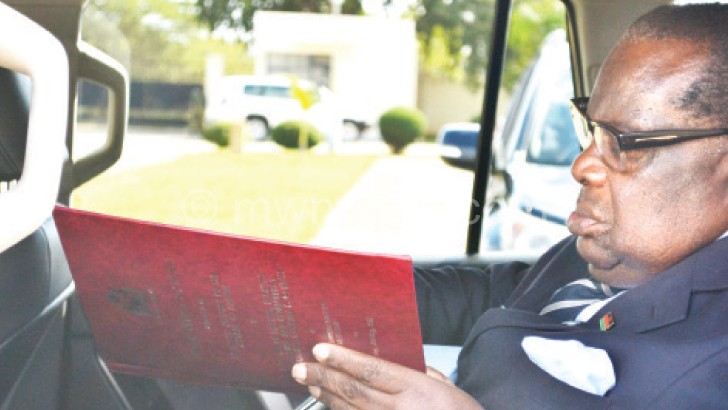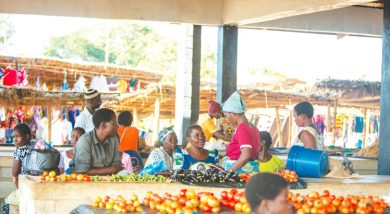2016/17 Budget winners and losers
Finance, Economic Planning and Development Minister Goodall Gondwe’s painstaking work to balance the K1 136.4 trillion 2016/17 National Budget unveiled on Friday will come at the expense of the taxpayer as new tax measures dig deeper into their pockets.
As Gondwe seeks to ensure the development agenda and social protection are achieved within strong limits imposed by the watchful eye of the International Monetary Fund (IMF), several sectors are sacrificial lambs, receiving unexpected budget cuts while aspirations of pay hikes for civil servants and recruitments in the civil service have been shelved for now.

as he arrives at Parliament on Friday
But the Ministry of Agriculture Irrigation and Water Development, thanks to the new irrigation initiatives and the response to the looming hunger crisis, got the lion’s share of the budget with a projected funding of K117.5 billion.
Other winners of the budget include those in the energy sector, particularly in business of supplying power voltage, who will benefit from removal of customs duty with Gondwe citing diversification of sources of energy from hydro-power to solar, biogas and wind as the reason for removing the customs duty.
Gondwe said this is to support investment in solar renewable energy supplies with the previous five percent import duty on power voltage removed alongside all duties on solar gadgets.
The pharmaceutical industry, too, got a fair share. Gondwe removed customs duty on surgical gloves to address recent scarcity of the items in public hospitals.
Local tobacco cigarettes manufacturing companies will also benefit from Treasury’s decision to support and encourage the interest shown by new investors in the sector by reverting to the old two-tier excise tax regime that prevailed prior to amendments in 2014.
According to Gondwe, the two-tier excise tax regime means government will now charge levy of $10 (K7 120) per 1 000 sticks of cigarettes for locally made cigarettes or charge levy of $10 per 1 000 sticks of cigarettes for imported cigarettes with 70 percent locally grown tobacco content.
“Mr. Speaker, Sir, the excise tax regime to be applied to cigarettes that I have presented puts the Malawi excise tax structure in line with the rest of our neighbouring countries which shall, therefore, reduce smuggling of cigarettes to Malawi,” Gondwe told Parliament.
However, the losers include the mining sector with Gondwe announcing that the mining fiscal regime, enacted at the time of independence, “is out of tune with current national and international developments in the mining sector”; hence, will come under review.
Gondwe said he will subsequently table a Bill that aims at providing clarity in the determination of taxable income, incentives and proposals to transfer the administration and collection of royalty from the Ministry of Mines to the Malawi Revenue Authority (MRA).
“To bring transparency in the tax incentives provisions that are granted to mining investors and to ensure equal and fair treatment, the fiscal regime for the mining sector will grant tax incentives to qualifying investors. The House may wish to note that the fiscal regime lays bare all tax incentives, details for claiming depreciation allowances, and determination of assessable income, thereby promoting transparency and accountability,” said Gondwe.
Life insurers also face new taxation as the Finance Minister announced an end to tax incentives to unify the corporate tax on life insurance investments with those of other businesses by increasing the rate by nine percent from 21 percent to 30 percent and further removed tax exemption on interest earned on income for K10 000.
For civil servants curious on new salary increments, Gondwe had no sweet message as he said the environment does not allow a bloated public wage bill.
The announced plan to establish the Greenbelt Authority (GBA) as a stand-alone public agency which will be the official agent for the construction of large scale irrigation infrastructural projects throughout the country promises not just wealth creation but also some jobs if not in short term but long term.
Grain traders are also likely to benefit with government going heavy on the market to restock the strategic grain reserves and make up for a maize deficit amid threats of hunger. n





